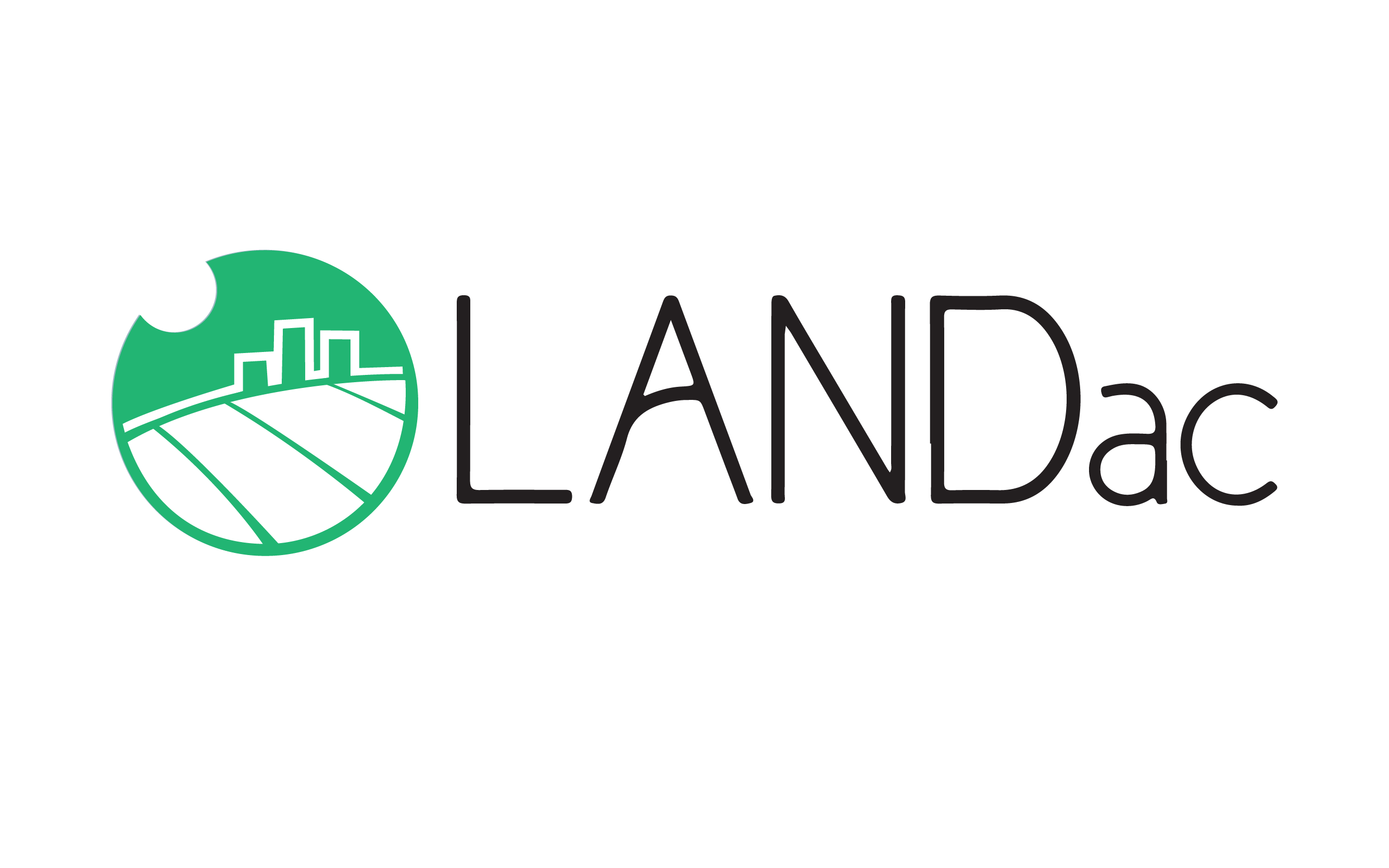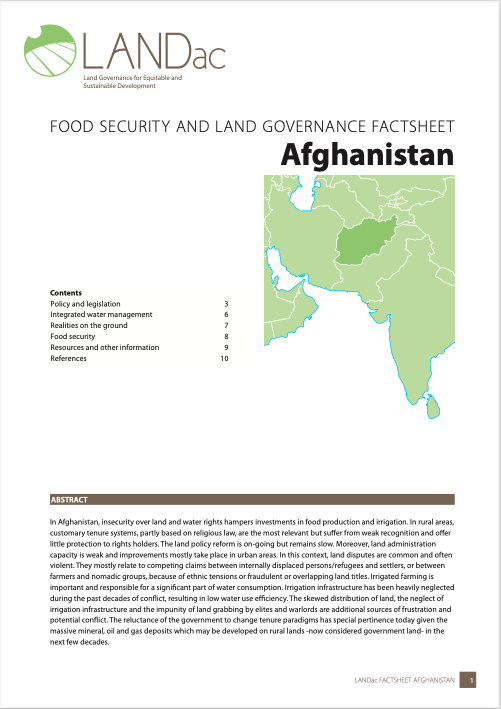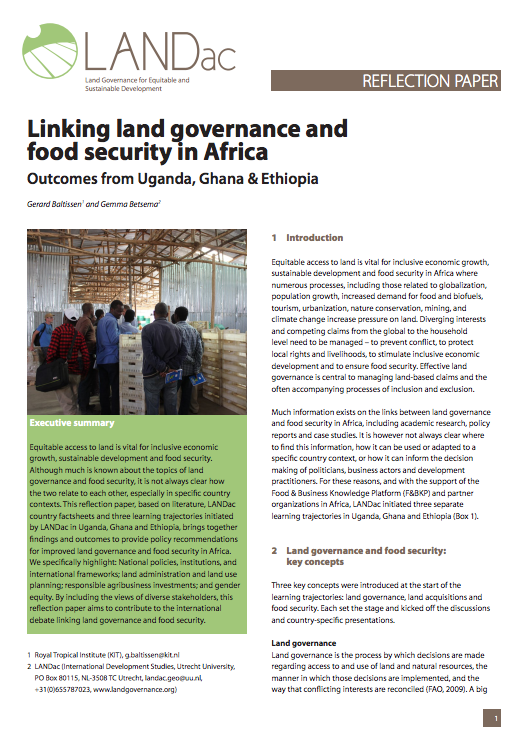Location
LANDac, the Netherlands Academie on Land Governance for Equitable and Sustainable Development, is a partnership between Dutch organizations working on land governance. The partners are the International Development Studies (IDS) group at Utrecht University (leading partner), African Studies Centre, Agriterra, the Sociology of Development and Change (SDC) group at Wageningen University, the Land Portal Foundation, HIVOS, the Royal Tropical Institute (KIT), the Netherlands Ministry of Foreign Affairs, and Enclude Solutions. LANDac is one of the IS-Academies, a series of programs sponsored by the Ministry of Foreign Affairs, to improve and strengthen linkages between academia and development practitioners in the field of international cooperation (IS Academies for International Cooperation)
LANDac aims at bringing together researchers, policy makers and development practitioners in the field of land governance and development. The LANDac network conducts research, brings together actors and distributes information, focusing on new pressures and competing claims on land and natural resources. LANDac studies the impact of large-scale land deals in agriculture for food production andf biofuels, urbanization, tourism; and the role of land laws, reforms, regulations, and voluntary guidelines and principles, in dealing with new pressures. LANDac has six PhD research projects and several related PhDs; moreover, 17 short-term research projects have been carried out in collaboration with Southern partners.
Mission
LANDac, the IS Academy on Land Governance for Equitable and Sustainable Development, aims at bringing together researchers, policy makers and practitioners in the field of land governance and development.
Land Governance for Equitable and Sustainable Development
LANDac is a partnership between several Dutch organisations and their Southern partners involved in development-related research, policy and practice. The partners share a concern for increasing land inequality and new land-related conflicts, and how land governance – rules and practices on access to land – can be used to promote equitable and sustainable development in the Global South.
LANDac is one of the IS Academies for International Cooperation sponsored by the Netherlands Ministry of Foreign Affairs.
Resources
Displaying 21 - 25 of 33Food Security and Governance Factsheet: Afghanistan
In Afghanistan, insecurity over land and water rights hampers investments in food production and irrigation. In rural areas, customary tenure systems, partly based on religious law, are the most relevant but suffer from weak recognition and offer little protection to rights holders. The land policy reform is on-going but remains slow. Moreover, land administration capacity is weak and improvements mostly take place in urban areas. In this context, land disputes are common and often violent.
Global Scaling up of Women’s Land Rights
A discussion paper attempting to take stock of what works and does not work in interventions seeking to promote and enhance women’s land rights. Looks at both individual and community land tenure, rural and urban land, arable and forest land. Describes a variety of interventions in as much detail as possible to understand why the intervention worked or not. Makes recommendations for scaling up women’s land rights.
Linking land governance and food security in Africa. Outcomes from Uganda, Ghana & Ethiopia
Equitable access to land is vital for inclusive economic growth, sustainable development and food security. Much is known about the topics of land governance and food security, but it is not always clear how the two relate to each other, especially in specific country contexts. Brings together findings and outcomes from Uganda, Ghana and Ethiopia to provide policy recommendations for improved land governance and food security in Africa.
Linking land governance and food security in Africa
As part of a F&BKP knowledge agenda on land governance and food security, LANDac organisedthree country-specific learning trajectories on land governance and food security in Uganda, Ghana and Ethiopia. This reflection paper brings together the main findings and outcomes to provide policy recommendations for improved land governance and food security in Africa.
FOOD SECURITY AND LAND GOVERNANCE FACTSHEET
Food security in Uganda relies mainly on access to land and security of tenure. Land governance is marked by the contradiction between relatively progressive legislation and only partial implementation. Institutions that have to deal with land administration and land disputes, such as customary authority systems, local government, and special courts for land justice, have weakened in the last years. Women’s position with respect to land and inheritance also remains weak, both legally and in practice, undermining their livelihoods and status in society.






